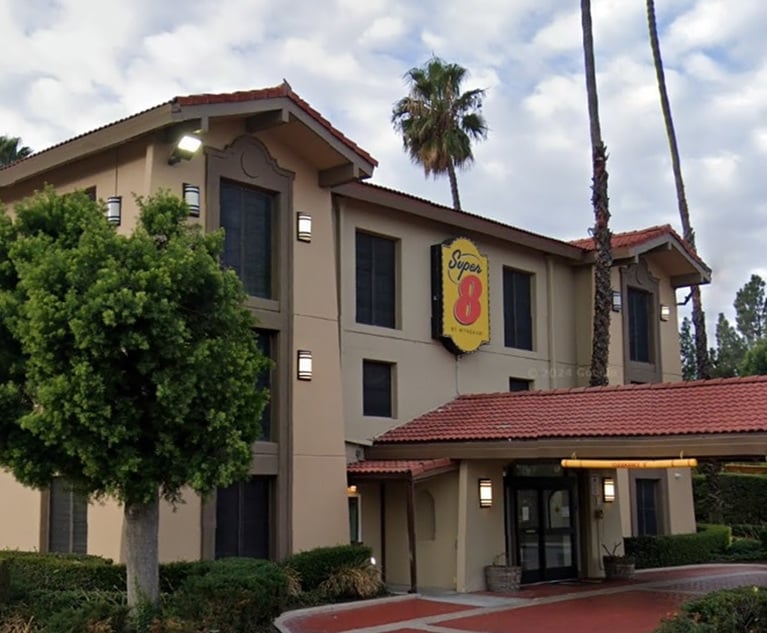Cannabis Lawyers Could Get More Protection Under New Ethics Rule
The proposed language appears to offer guidance—and cover—for attorneys counseling clients who face a conflict between California and federal laws.
July 02, 2018 at 05:58 PM
3 minute read
 Assortment of cannabis products sold in California. Credit: Jason Doiy/ ALM
Assortment of cannabis products sold in California. Credit: Jason Doiy/ ALM Paragraph (b) permits a lawyer to advise a client regarding the validity, scope, and meaning of California laws that might conflict with federal or tribal law, and, despite such a conflict, to assist a client in drafting, administering, or complying with California statutes, regulations, orders, and other state or local provisions that execute or apply to those laws. If California law conflicts with federal or tribal law, the lawyer must inform the client about related federal or tribal law and policy (see Rule 1.4), and under certain circumstances may also be required to provide legal advice to the client regarding the conflict (see, e.g., Rule 1.1).
Paragraph (b) permits a lawyer to advise a client regarding the validity, scope, and meaning of California laws that might conflict with federal or tribal law. In the event of such a conflict, the lawyer may assist a client in drafting, interpreting, administering, or complying with California laws, including statutes, regulations, orders, and other state or local provisions, even if the client's actions might violate the conflicting federal or tribal law. If California law conflicts with federal or tribal law, the lawyer must inform the client about related federal or tribal law and policy and under certain circumstances may also be required to provide legal advice to the client regarding the conflict (see Rules 1.1 and 1.4).
➤➤ Get the latest cannabis lawyering, compliance and commentary straight to your inbox with Higher Law, a new Law.com briefing. Sign up here.
Los Angeles San Francisco Many other states on the bar's website
Read more: Higher Law: Thoughts on FDA's Marijuana First | Pot Rules in Bible Belt McGregor Scott's Pot Policies Track Obama-Era 'Cole Memo' California Spikes Proposed Workplace Marijuana Protections Here's Where Weedmaps Is Spending Its Lobbying Cash Weed in the Workplace: What are California Employers' Rights?
This content has been archived. It is available through our partners, LexisNexis® and Bloomberg Law.
To view this content, please continue to their sites.
Not a Lexis Subscriber?
Subscribe Now
Not a Bloomberg Law Subscriber?
Subscribe Now
NOT FOR REPRINT
© 2025 ALM Global, LLC, All Rights Reserved. Request academic re-use from www.copyright.com. All other uses, submit a request to [email protected]. For more information visit Asset & Logo Licensing.
You Might Like
View All
Latham Adds Former Treasury Department Lawyer for Cross-Border Deal Guidance
2 minute read
Law Firms Expand Scope of Immigration Expertise Amid Blitz of Trump Orders
6 minute read
Trending Stories
- 1Public Notices/Calendars
- 2Wednesday Newspaper
- 3Decision of the Day: Qui Tam Relators Do Not Plausibly Claim Firm Avoided Tax Obligations Through Visa Applications, Circuit Finds
- 4Judicial Ethics Opinion 24-116
- 5Big Law Firms Sheppard Mullin, Morgan Lewis and Baker Botts Add Partners in Houston
Who Got The Work
J. Brugh Lower of Gibbons has entered an appearance for industrial equipment supplier Devco Corporation in a pending trademark infringement lawsuit. The suit, accusing the defendant of selling knock-off Graco products, was filed Dec. 18 in New Jersey District Court by Rivkin Radler on behalf of Graco Inc. and Graco Minnesota. The case, assigned to U.S. District Judge Zahid N. Quraishi, is 3:24-cv-11294, Graco Inc. et al v. Devco Corporation.
Who Got The Work
Rebecca Maller-Stein and Kent A. Yalowitz of Arnold & Porter Kaye Scholer have entered their appearances for Hanaco Venture Capital and its executives, Lior Prosor and David Frankel, in a pending securities lawsuit. The action, filed on Dec. 24 in New York Southern District Court by Zell, Aron & Co. on behalf of Goldeneye Advisors, accuses the defendants of negligently and fraudulently managing the plaintiff's $1 million investment. The case, assigned to U.S. District Judge Vernon S. Broderick, is 1:24-cv-09918, Goldeneye Advisors, LLC v. Hanaco Venture Capital, Ltd. et al.
Who Got The Work
Attorneys from A&O Shearman has stepped in as defense counsel for Toronto-Dominion Bank and other defendants in a pending securities class action. The suit, filed Dec. 11 in New York Southern District Court by Bleichmar Fonti & Auld, accuses the defendants of concealing the bank's 'pervasive' deficiencies in regards to its compliance with the Bank Secrecy Act and the quality of its anti-money laundering controls. The case, assigned to U.S. District Judge Arun Subramanian, is 1:24-cv-09445, Gonzalez v. The Toronto-Dominion Bank et al.
Who Got The Work
Crown Castle International, a Pennsylvania company providing shared communications infrastructure, has turned to Luke D. Wolf of Gordon Rees Scully Mansukhani to fend off a pending breach-of-contract lawsuit. The court action, filed Nov. 25 in Michigan Eastern District Court by Hooper Hathaway PC on behalf of The Town Residences LLC, accuses Crown Castle of failing to transfer approximately $30,000 in utility payments from T-Mobile in breach of a roof-top lease and assignment agreement. The case, assigned to U.S. District Judge Susan K. Declercq, is 2:24-cv-13131, The Town Residences LLC v. T-Mobile US, Inc. et al.
Who Got The Work
Wilfred P. Coronato and Daniel M. Schwartz of McCarter & English have stepped in as defense counsel to Electrolux Home Products Inc. in a pending product liability lawsuit. The court action, filed Nov. 26 in New York Eastern District Court by Poulos Lopiccolo PC and Nagel Rice LLP on behalf of David Stern, alleges that the defendant's refrigerators’ drawers and shelving repeatedly break and fall apart within months after purchase. The case, assigned to U.S. District Judge Joan M. Azrack, is 2:24-cv-08204, Stern v. Electrolux Home Products, Inc.
Featured Firms
Law Offices of Gary Martin Hays & Associates, P.C.
(470) 294-1674
Law Offices of Mark E. Salomone
(857) 444-6468
Smith & Hassler
(713) 739-1250







